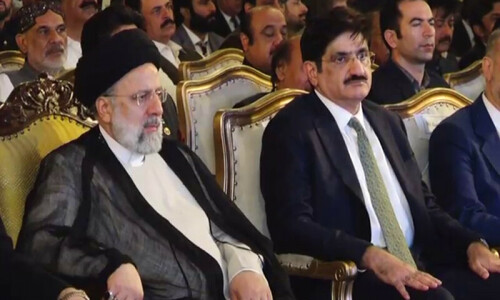67 years ago, the die was cast in a decision to carve up the Indian subcontinent. There was no going back.
While the details of this partition may have been wrought in a British barrister’s map room, its price would ultimately be paid for by the blood of a million souls who perished in the ensuing madness, the largest mass migration of human beings in history.
The generation that witnessed and survived this traumatic event did not emerge unscathed and despite the outward stoicism of many, the memories can never be completely deactivated. Their souls represent largely untapped reservoirs of raw experience and by and large, the way of dealing with the suffering has been through a system of suppression as I learnt from the tale of Syed Mujeeb and Ahmedunissa Zafer.
Mujeeb, a young shopkeeper in Hyderabad, had saved up for years to buy his own shop in earnest. On the eve of the partition, he watched helplessly as his shop was engulfed in the flames of a vengeful mob, and with it, his hopes and dreams. But with malice towards none, Mujeeb and his wife emerged from the rubble and picked up right where they left off. Mujeeb would go on to become a successful industrialist, known for his consummate honesty and benevolence. The couple started a family that soon swelled to ten children, and they would one day retire and settle in the US, living a quiet, pious life. Not once did they show rancour to their traumatic past, to the extent that Mujeeb passed away in 2012, taking this story to the grave with him and never divulging it to his offspring. Only last year, after much cajoling and arm-twisting, did the widowed Mrs. Zafer reveal this tragic, yet inspiring tale.
'Only separated by a border'
Be as it may, India and Pakistan, baptised by fire, continue to come of age in this ever-changing world. Yet, as they struggle to confront and understand their individual identities, the memory of a shared past has frayed over the past several decades.
Although I was born and bred in the United States, I keep trying to rekindle these memories. Why? Because while growing up here, I had the unique privilege of growing up with Pakistanis; something that the average citizen in neither country experiences. When we were kids, we didn’t fight over India and Pakistan; we fought over whose Mom makes better biryani. We stood by each other at school when the other kids made fun of our qeema sandwiches. We commiserated on how awful our Urdu or Hindi was and how strict our parents were. We just had too much in common. Socio-political tensions between our parents’ countries seemed so trivial.
Perhaps one of the greatest things we Indians and Pakistanis have in common is our rich musical tradition. As a musician myself, I have always been fascinated by the national anthems of both these countries.
Being of Indian descent, it is only natural that I possess a certain familiarity with the hymnal echoes of Raag Yaman in Jana Gana Mana. Moreover, as a conservatory-trained cadet of Western Classical Music, I can say that the Qaumi Tarana, with its piano sonata structure, coupled with its triumphantly martial, eastern bloc-ish overtones, is just as, if not more familiar to me.
The fact is that both of these anthems fill me with a sense of pride and duty. Pride for being exactly who I am and duty towards bringing the people of India and Pakistan together.
Let us join hands and sing the anthems of our great nations. After all, in the words of my grandparents, Mujeeb and Ahmedunissa Zafer, “we are only separated by a border.” (Text by Zeshan Bagewadi)
Credits
Music and Vocals: Zeshan Bagewadi
Producer and Director: Nushmia Khan (Zujaja)
Zeshan Bagewadi is an award-winning Indian-American musician based in Chicago.
Nushmia Khan of Zujaja, is a filmmaker and photojournalist based in NYC, currently working at Inc. Magazine.












































